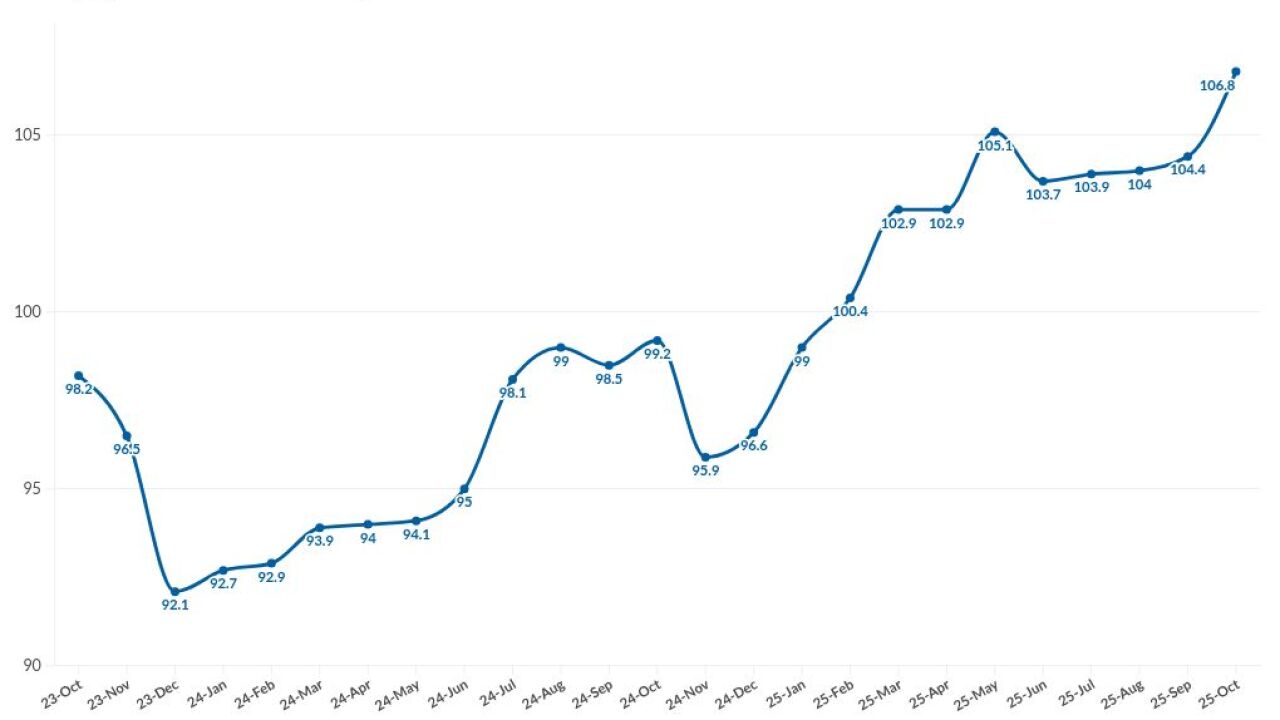Orix USA, a unit of the Japanese financial services conglomerate Orix Corp (NYSE: IX), is the latest asset management firm to turn to the CRE CLO securitization format to finance bridge loans for new-construction and transitional properties.
OREC 2018-CRE1 is a $350 million commercial real estate collateralized loan obligation backed by a portfolio of 23 new-construction and newly acquired properties, primarily multifamily assets, that the $63 billion-asset Orix has financed or acquired.
While the pool covers a range of newly built, renovated or newly acquired assets, each is in a pre-stabilization phase awaiting refinancing through a permanent agency takeout loan through Fannie Mae, Freddie Mac or the Federal Housing Administration, according to Moody’s Investors Service.
The initial pool consists of $299.4 million in existing commercial mortgages – including whole loans and pari passu participations – that were issued between 2014 and 2018 (12 in the past year), plus a $50.6 million funded reserves for assets to be acquired during a 2.5-year reinvestment period that commences after a four-month ramp-up for the deal following closing.
The transaction features six classes of term notes and a subordinate tranche of income notes; however, the trust only plans to market the $190.3 million Class A notes which have preliminary triple-A ratings from Moody’s and Kroll Bond Rating Agency. The senior notes benefit from 45.63% subordination and are expected to price at a coupon of 12 basis points over one-month Libor.

All of the subordinate note classes will be retained through Orix affiliates.
The deal characteristics are similar to those of other CRE CLOs sponsored this year by
All the loans in the pool are interest-only, and none of the obligors are credit assessed as investment grade, meaning that the average borrower rating is a highly speculative B3/Caa1 rating. All the loans are serviced by an Orix USA affiliate, Red Mortgage Capital.
As is expected with transitional and startup properties, cash flow is limited; according to Kroll, six loans (or 30.5% of the identified pool) have a debt-to-service coverage ratio below 1.00x. That includes three of the seven largest loans in the pool, like the $25 million whole-loan financing the new 208-unit luxury South 400 Apartments in the historic south-side downtown corridor of Fort Worth, Tex.
Fourteen properties are multifamily properties, which include residential apartments, private-pay senior assisted living facilities and student-housing developments.
The portfolio also has a major Hilton Canopy-branded hotel property in the central business district of Portland, Ore. Although the hotel has positive cash flow at 1.48x DSCR, it is highly leveraged at 106.5% with average occupancy of only 75.4% in what Moody’s considers a weaker hotel market.
More than 52.7% of the pool (covering 11 properties) are assets requiring lease-up after recent construction or conversion. Four of the loans have available future funding allowed in agreements that can be used for construction or leasing costs, operating deficits or debt-service shortfalls, according to Kroll.
JPMorgan is lead left on the transaction, with underwriting participation from Wells Fargo and Citigroup.





